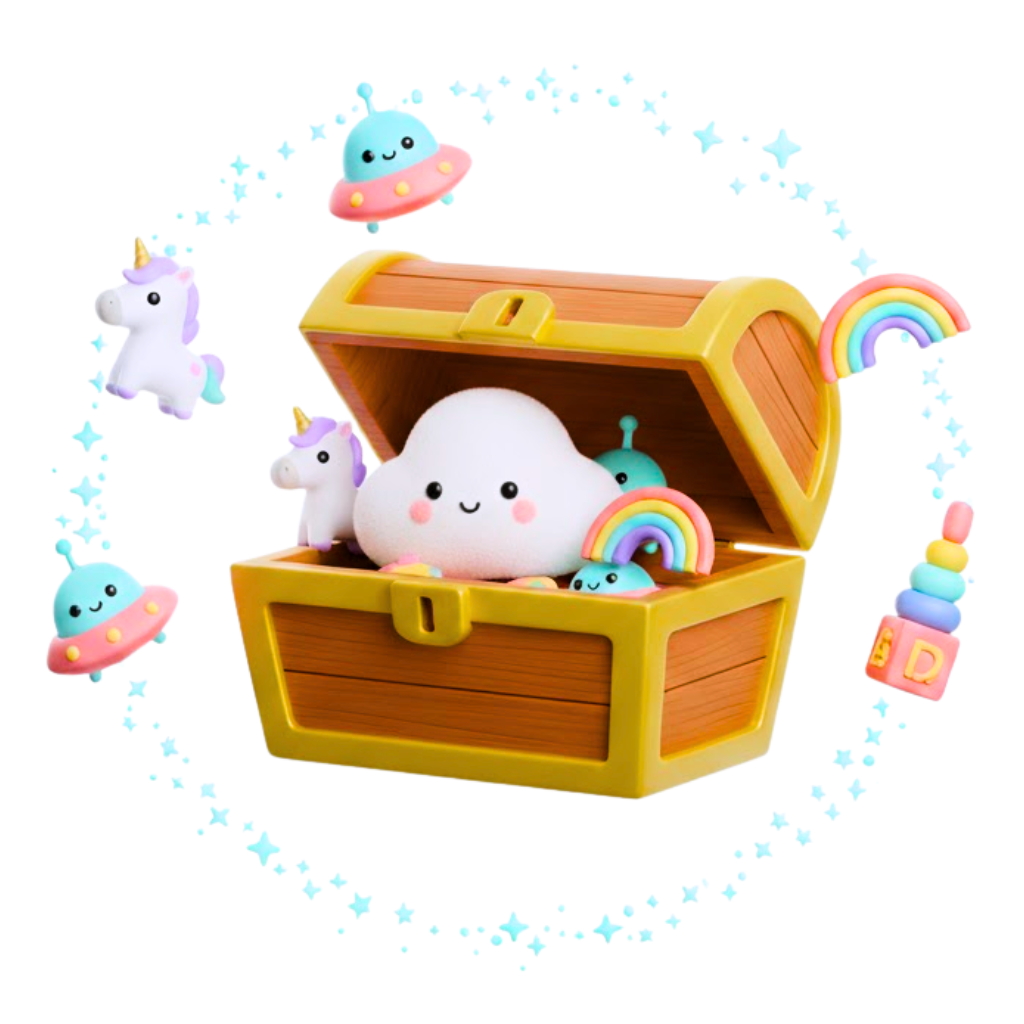
The Benefits of Open-Ended Play with Wooden Educational Toys
Share

Open-ended play is a type of play that encourages children to use their imagination, creativity, and problem-solving skills without a predetermined outcome. Unlike structured play, which has specific rules and objectives, open-ended play allows children to explore and create freely. Wooden educational toys are ideal for fostering this type of play, offering countless opportunities for discovery and learning. If you're looking to "Buy Best Wooden Educational Toys Online for Kids & Toddlers in India," understanding the benefits of open-ended play can help you choose toys that will support your child's development. DODKart offers a wide range of these versatile toys.
What is Open-Ended Play?
Open-ended play is characterized by activities that do not have a fixed end or goal. It allows children to use their imagination and creativity to explore different possibilities and outcomes. This type of play is crucial for developing cognitive, social, and emotional skills.
Unlike toys with specific functions or outcomes, open-ended toys can be used in various ways, depending on the child's imagination and creativity. Wooden educational toys are particularly well-suited for open-ended play because of their simplicity and versatility. They can be transformed into anything a child desires, providing endless possibilities for creative exploration.
Benefits of Open-Ended Play with Wooden Educational Toys
- Encourages Creativity and Imagination
Open-ended play with wooden educational toys encourages children to think creatively and use their imagination. Because these toys do not have a specific purpose or instruction, children are free to invent their own games, stories, and scenarios. This freedom fosters creativity and helps children develop their own unique ideas and solutions.
For example, a simple set of wooden blocks can be transformed into a castle, a car, a spaceship, or anything else a child can imagine. This imaginative play helps children explore different roles, scenarios, and possibilities, enhancing their creative thinking skills.
- Promotes Problem-Solving and Critical Thinking
Open-ended play challenges children to think critically and solve problems. When children engage in play without a set goal, they often encounter challenges or obstacles that they must overcome. This process helps develop problem-solving skills and encourages children to think outside the box.
For instance, when building with wooden blocks, children may face challenges like balancing structures or figuring out how to create a specific shape. These challenges encourage them to experiment, test different solutions, and learn from their experiences.
- Supports Social and Emotional Development
Open-ended play with wooden educational toys can also support social and emotional development. When children play together, they learn to communicate, collaborate, and negotiate. These interactions help build important social skills, such as sharing, taking turns, and empathizing with others.
In addition, open-ended play allows children to express their emotions and explore different perspectives. For example, through role-playing with wooden figurines or dolls, children can explore different emotions and situations, helping them develop empathy and emotional intelligence.
- Enhances Fine and Gross Motor Skills
Many wooden educational toys used in open-ended play help develop fine and gross motor skills. Building, stacking, threading, and manipulating small objects improve fine motor control and hand-eye coordination. Activities like pushing, pulling, and balancing with larger wooden toys help develop gross motor skills and physical coordination.
For example, playing with wooden lacing beads improves fine motor skills, while pushing a wooden cart or riding a wooden scooter enhances gross motor development. These physical activities are essential for overall health and well-being.
- Promotes Independent Play and Self-Regulation
Open-ended play encourages children to play independently and develop self-regulation skills. When children are free to direct their own play, they learn to make decisions, manage their time, and regulate their emotions. This autonomy fosters a sense of independence and confidence.
Wooden educational toys, with their simplicity and versatility, are perfect for independent play. Children can use these toys to create their own games and activities, learning to set goals and work towards them. This process helps build self-discipline and resilience.
- Provides Opportunities for Learning and Exploration
Open-ended play with wooden educational toys provides endless opportunities for learning and exploration. Children can learn about shapes, sizes, colors, and spatial relationships through building and stacking activities. They can explore concepts like balance, symmetry, and cause-and-effect through experimentation and play.
For example, wooden puzzles help children learn about shapes and spatial relationships, while building sets can teach concepts of engineering and architecture. These learning experiences are valuable for developing cognitive skills and fostering a love of learning.
Choosing Wooden Educational Toys for Open-Ended Play
When selecting wooden educational toys for open-ended play, consider the following factors:
-
Versatility: Choose toys that can be used in various ways and encourage creative exploration. Look for toys like building blocks, puzzles, and figurines that can be combined and reimagined in multiple scenarios.
-
Quality and Safety: Ensure the toys are made from high-quality, non-toxic materials and have smooth edges to prevent injuries. Wooden toys are known for their durability and longevity, making them a safe and sustainable choice.
-
Age-Appropriate: Select toys that are suitable for your child's age and developmental stage. Younger children may benefit from larger, simpler toys, while older children may enjoy more complex and detailed options.
-
Engagement and Interest: Choose toys that align with your child's interests and passions. This will keep them engaged and motivated to explore and create.
-
Eco-Friendly Options: Consider toys made from sustainably sourced wood and eco-friendly materials. This choice supports environmental sustainability and teaches children about responsible consumption.
Conclusion
Open-ended play with wooden educational toys offers a wealth of benefits for children's development. From fostering creativity and imagination to promoting problem-solving and social skills, these toys provide endless opportunities for learning and growth. When you choose to "Buy Best Wooden Educational Toys Online for Kids & Toddlers in India" from DODKart, you are investing in toys that support your child's holistic development.
Wooden educational toys are more than just playthings; they are tools that encourage exploration, creativity, and independent thinking. By providing children with the freedom to play and create, these toys help them develop essential life skills and a love of learning.
As you explore the options available online, consider the long-term benefits of wooden educational toys for your child's development. By making a thoughtful choice, you can provide them with toys that are not only fun and engaging but also aligned with the best educational practices and environmental values.
So, if you're ready to support your child's development with versatile, eco-friendly, and educational toys, "Buy Best Wooden Educational Toys Online for Kids & Toddlers in India" from DODKart today. With their numerous benefits and timeless appeal, wooden toys are a valuable addition to any child's toy collection.

